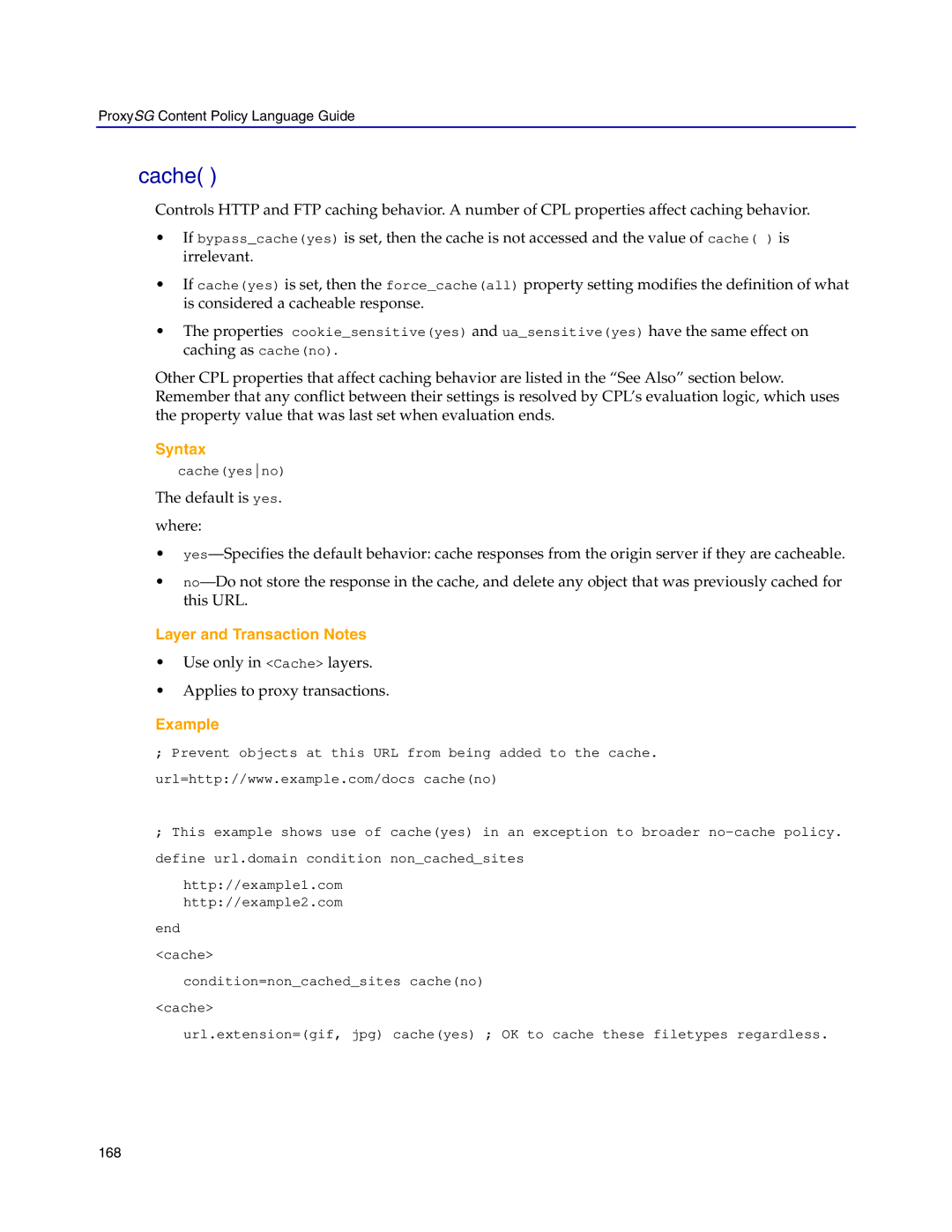ProxySG Content Policy Language Guide
cache( )
Controls HTTP and FTP caching behavior. A number of CPL properties affect caching behavior.
•If bypass_cache(yes) is set, then the cache is not accessed and the value of cache( ) is irrelevant.
•If cache(yes) is set, then the force_cache(all) property setting modifies the definition of what is considered a cacheable response.
•The properties cookie_sensitive(yes) and ua_sensitive(yes) have the same effect on caching as cache(no).
Other CPL properties that affect caching behavior are listed in the “See Also” section below. Remember that any conflict between their settings is resolved by CPL’s evaluation logic, which uses the property value that was last set when evaluation ends.
Syntax
cache(yesno)
The default is yes.
where:
•
•
Layer and Transaction Notes
•Use only in <Cache> layers.
•Applies to proxy transactions.
Example
;Prevent objects at this URL from being added to the cache. url=http://www.example.com/docs cache(no)
;This example shows use of cache(yes) in an exception to broader
http://example1.com
http://example2.com
end <cache>
condition=non_cached_sites cache(no) <cache>
url.extension=(gif, jpg) cache(yes) ; OK to cache these filetypes regardless.
168
